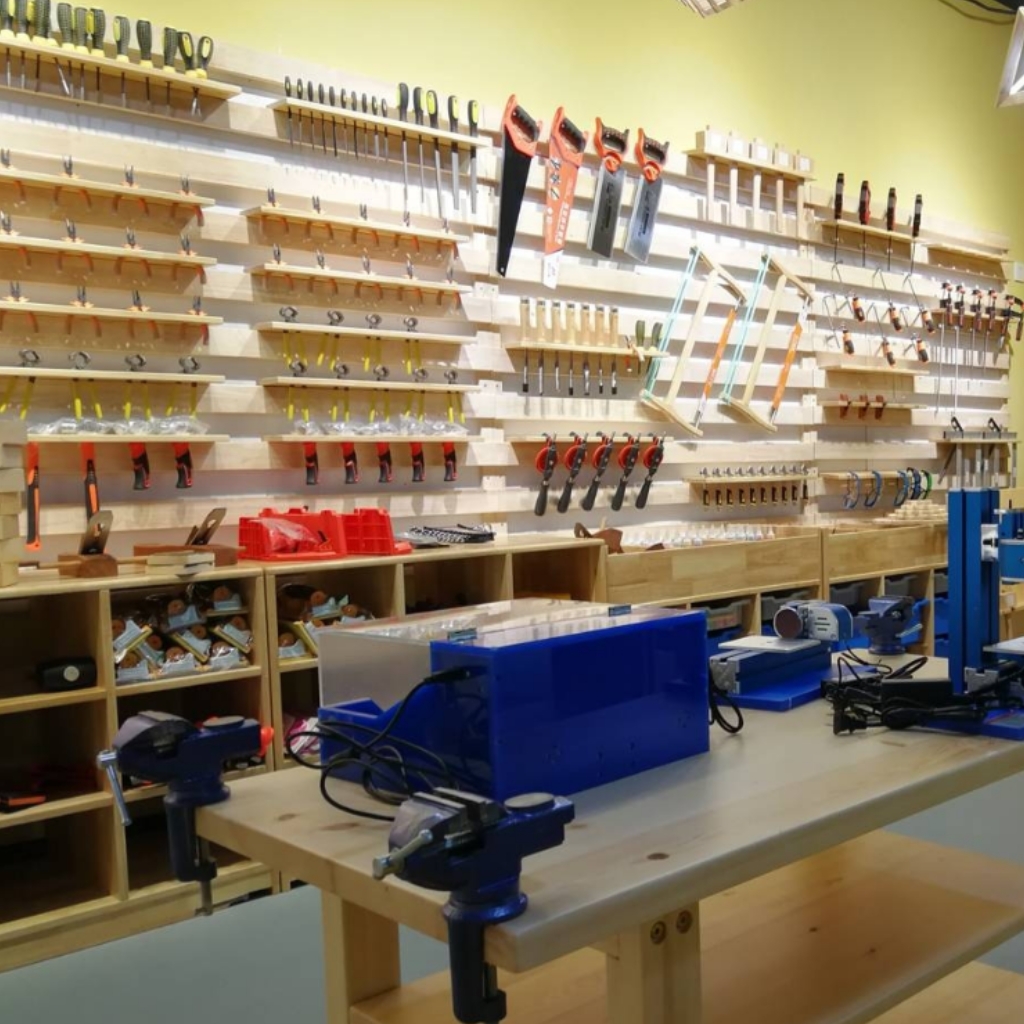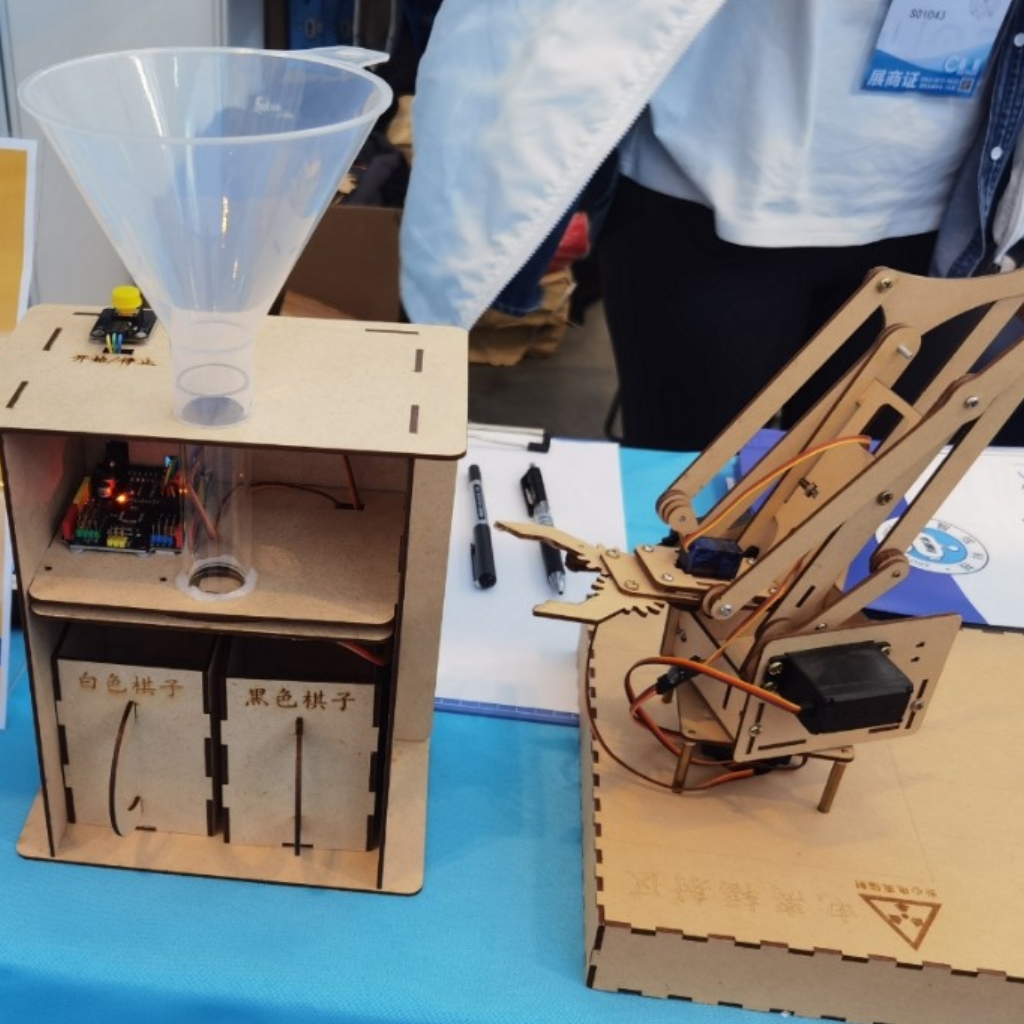Blog
Xendoll has 22 years of experience in the production of small machine tools. We will help you choose the suitable machine and share our experience in CNC machining with you.
 Jun 26, 2025
Jun 26, 2025

 1119
1119
At first glance, a wood lathe with a wooden bed might seem counterintuitive. In a world dominated by metal machinery, why would the very foundation of a precision tool be made of wood? For distributors of mini-lathes, educators, and discerning hobbyists, understanding this design choice is key. Far from being a compromise, the wooden bed on lathes like those offered by XendollTools serves distinct and valuable purposes rooted in vibration control, user experience, cost-effectiveness, and practical workshop handling.

1. Master of Vibration Damping: The Core Advantage
The primary and most significant reason for a wooden bed is its superior vibration damping properties compared to most metals.
The Physics of Chatter: When a lathe tool contacts spinning wood, it creates vibrations. These vibrations travel through the tool, the tool rest, the lathe's bed, and back into the workpiece. This phenomenon, known as "chatter," manifests as unwanted ripples, rough surfaces, and difficulty achieving fine cuts. It's the nemesis of precision turning.
Wood vs. Metal: Dense hardwoods or high-quality laminated plywood (like the durable birch ply often used in XendollTools lathes) possess a natural ability to absorb and dissipate these high-frequency vibrations. Metals, especially lighter alloys common in mini-lathes, tend to transmit vibrations more readily. A rigid metal bed can be designed to minimize flex, but it often requires significantly more mass and complex engineering to effectively dampen vibrations like wood does inherently.
The Result: A wooden bed provides a noticeably smoother cutting action. Hobbyists experience less chatter, allowing for finer detailing and a better surface finish right off the tool. Educators find students achieve success more readily with less frustration from vibration issues. This translates directly to higher quality work and a more enjoyable turning experience.
2. Practicality in the Workshop: Lightweight & Stable
Beyond vibration control, the wooden bed offers significant practical benefits, especially for smaller lathes and home workshops:
Reduced Weight: Wood is significantly lighter than an equivalent mass of metal needed for equivalent rigidity against bending. This makes mini-lathes with wooden beds much easier to maneuver, transport, and store. For hobbyists setting up in garages, basements, or shared spaces, or for educational institutions needing to move equipment between classrooms or storage, this lightweight nature is a major advantage. Distributors benefit from lower shipping costs.
Inherent Stability: A well-designed wooden bed, securely mounted to a sturdy stand or workbench, provides excellent stability for the size and power of mini-lathes. The mass of the bed itself, combined with the vibration damping, contributes to a solid feel during operation without the excessive weight penalty of metal.
Workshop-Friendly: Wood is less susceptible to minor dings and scratches than painted metal, and it doesn't show fingerprints or light corrosion like bare metal might in a humid environment. It's simply easier to live with in a typical workshop setting.
3. Cost-Effectiveness: Performance Without Premium Price
The use of wood plays a crucial role in making high-quality mini-lathes accessible:
Material and Manufacturing Efficiency: High-grade hardwood or engineered plywood is generally less expensive to source and machine than equivalent volumes of high-strength, vibration-resistant metal castings or extrusions. This significantly reduces the manufacturing cost.
Value Proposition: This cost saving is passed down, allowing manufacturers like XendollTools to offer lathes with exceptional vibration damping and stability at a highly competitive price point. This opens the door for more hobbyists to start turning, allows educational programs to equip more workstations, and gives distributors a compelling product within a crucial market segment. You get excellent core performance (smooth turning) without paying for material (metal) that isn't providing a proportional benefit in this specific application.
4. Addressing Concerns: Rigidity and Durability
Naturally, questions arise about the rigidity and longevity of a wooden bed:
Sufficient Rigidity for Purpose: It's crucial to understand that mini-lathes are designed for light-to-medium duty turning of smaller projects (pens, small bowls, spindles, etc.). The wooden bed, especially when made from thick, stable laminations like quality birch plywood, provides more than adequate rigidity for these tasks. The bed itself isn't the sole source of rigidity; the headstock and tailstock design and their robust mounting to the bed are equally critical. XendollTools ensures these connections are exceptionally secure.
Engineered Durability: Modern wooden beds aren't simple planks. They use kiln-dried, stable hardwoods or high-grade, void-free plywood specifically chosen for dimensional stability and resistance to warping. Sealing with durable finishes protects against moisture and minor spills. With reasonable care (avoiding standing liquid, heavy impacts), a wooden bed lathe offers excellent long-term durability, as evidenced by many decades-old lathes still in service.
Metal Reinforcement: Often, critical stress points like the headstock mounting area or ways (the rails the tailstock/tool rest slide on) are reinforced with metal plates or strips, combining the vibration benefits of wood with localized metal strength where absolutely needed.

Conclusion: A Purpose-Built Foundation for Smoother Turning
The wooden bed on a mini wood lathe is far from an outdated relic or a simple cost-cutting measure. It's a deliberate engineering choice that delivers tangible benefits crucial to the user experience. By providing superior vibration damping for smoother cuts and finer finishes, offering lightweight practicality for easier handling and setup, and enabling exceptional value, the wooden bed proves its worth. While massive metal beds have their place in heavy industrial lathes, for the world of mini and benchtop wood lathes catering to hobbyists, educators, and small workshops, the wooden bed remains a highly effective, practical, and purpose-driven solution. Brands like XendollTools leverage this intelligent design to offer accessible, high-performing tools that help turners of all levels focus on their craft, not on fighting chatter. It's a foundation built on understanding the real needs of the workshop.
For details, please refer to the following link:https://www.xendolltools.com/category/micro-cnc-machine.html



 Show all our samples
Show all our samples
 Provide you with a free quote
Provide you with a free quote
 Answer all the questions you may have
Answer all the questions you may have
 Guided installation and other options
Guided installation and other options